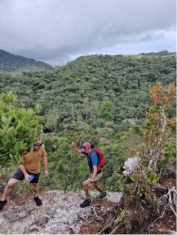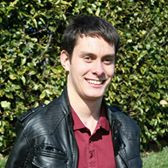Early humans developed assumptions as a survival strategy if they suffered a particularly harsh winter. Those who stockpiled food the following year stood a higher chance of survival. This ability to form patterns from circumstances, observations, and experiences was a crucial component in the development of human intelligence, and such pattern recognition plays a role in our behavior to this day.
Whether we are aware of this or not, we make similar assumptions in our lives that go far beyond the old adage about job interviews being decided in the first two minutes (studies have shown that people can decide whether they like someone based on their photograph within the first 40 minutes of seeing it). Once we understand that it is our natural inclination to make these assumptions, we can, by extension, realize the futility of messages like, “Don’t judge a book by its cover.” Our capacity to judge a book by its cover (if I may extend the metaphor) is the source of some of life’s most joyful things. Comedians rely on our need to try and guess the predictable outcome of anecdotes to create punchlines. Their essence comes from the punchline being related to but not precisely the outcome that was predicted. Without the original assumption the audience makes based on only the information given by the comedian, what follows would just be a loosely connected statement. A similar concept is true for the enjoyment of music — the brain attempts to form patterns from the sounds until it is surprised by a chord progression or shift. It is this sense of surprise that brings us enjoyment.
The people about whom such assumptions are made don’t often experience feelings of positivity engendered by the unexpected punchline or chorus, in the interest of not preaching on a trope. I won’t waste too many words trying to explain why such assumptions are a bad idea. Instead, I’d like to illustrate it with an anecdote from my childhood.
When I was 13, my classmates and I spent a week in the Blue Peris residential activity center in the Brecon Beacons. While queuing up to abseil, the instructor and one of my teachers pulled me aside to tell me they thought it would be best if one of the teaching assistants (who will remain nameless for the sake of his own dignity) should go down on the other line to help and support me should I need it. I tried to reassure them that I had done this before and would be okay. Still, despite several minutes of my protestations, I found myself descending a Welsh mountain next to a man who had failed to tell his new employer that he had a phobia of heights and, therefore, I was subjected to some colorful language that a 13-year-old should not hear from his teacher! This language that only ceased marginally with my reassurances about the strength of the rope and the expertise of the instructor. Remembering this still brings a smile to my face. So strong was the idea of how to help me that they failed to consult the biggest expert in disability present. The well-intentioned error was compounded by assuming that the TA’s status as a non-disabled man would make him more comfortable with the activity. I can tell you for sure this was not the case! The question I am trying to ask is, who is helping whom? Eager to please, as I was a child, I acquiesced to the anxieties of someone who didn’t know and wasn’t prepared to listen to my experience or capability. I know to many this may seem profoundly ungrateful, to be dismissive or even angry at something that was born out of an empathetic impulse to kindness; there was a time I would have agreed with you. Indeed, so firm was my conviction “never to punish an impulse to kindness” that those close to me learned to recognize when these acts upset me. Apparently, my tell was always to say, “That’s very kind of you”, in the same flat tone of voice. The psychologist Rhianna Lord eloquently describes these confusing feelings I was experiencing. She writes:, “The storied narratives of disabled people engaged were ones of helplessness and pity; owing to this, they often experience feelings of low self-concept, that is, feelings of low self-esteem and difficulty navigating their own sense of identity.” She adds that the lack of data in this area regarding young children is concerning and says it would be helpful in order to “breathe life into the understanding of clinicians.”

This mention of clinicians’ understanding certainly resonates. At around 16, I was once asked at one of my regular physio appointments if I would mind a few more people joining us to help with a teaching exercise. Being the happy and helpful chap I was, I agreed without hesitation, and then four or five people and watched as I walked up and down in my underwear whilst they were taught all about my gait. This is not necessarily an uncommon occurrence, and at the time, I was totally convinced that I was okay with it. Reflecting on it as an adult, it has deeply affected me to the extent that sometimes I dream about it. Even amongst individuals who should have known better, I was treated like a curiosity, an object of study.
The really incongruous thing is that those who do understand are often the people you would least expect, like my high school PE teacher who, when the student teacher who was teaching me, asked me to sit out of rugby for safety reasons, told me to call him an old woman and get on with it anyway. Perhaps even more remarkable still is the Afghanistan veteran with whom I had one conversation about some shared mental health difficulties. I felt comfortable enough to allow him to help me for an hour the following day hiking through Malaysia, something I would have been resolutely against (and am well known for rejecting) in all but a handful of cases. Why I chose him for this dubious honor, I don’t know. Perhaps our conversation the previous day had extended enough of the metaphorical hand of friendship for me to allow him to take my literal one in such different circumstances. Perhaps it was lingering teenage admiration of all things military (growing up, my interest in all things army bordered on the obsessive). I’m sure Dr. Lord would be able to shed some light on why this was. If you asked me, I would say it’s because I saw them as one of the few groups who understood the truth of, “We choose to … and do the other things, not because they are easy, but because they are hard, because that goal will serve to organize and measure the best of our energies and skills, because that challenge is one that we are willing to accept, one we are unwilling to postpone.”
Whatever the reason was that day, both memories, which took place years apart, share a common thread in the attitude of the person who is helping me; they had both taken the time to realize I was a person with emotions as acute as pride, and whether these feelings were constructive, stepping aside and not doing the task would not be an option I was mentally equipped to accept. It would have represented an affirmation of the sense of weakness I felt every time someone assumed I needed protecting, creating a mental paradox. An argument is often made that this attitude is laudable and simply an explanation for a determined character. It is true that I have done many things most people would not expect me to be capable of as a result. However, it also has its dangers. I am 26, and at the time of writing, have broken three bones, slipped over on the Parthenon, and almost given myself a concussion on the eighth wonder of the world.
One would imagine with all my discussion of assumptions that I’m urging people to leave me to it and essentially help me less. Unfortunately, such are the limitations in my life. This is not always possible and if attempted, would cause their own problems. Neil Coyle from the Disability Rights group commented that the narrative created by the Paralympics may encourage the perception that “…disabled people don’t need support if they can do all these great things. Just look at what they can achieve on their own, the sort of superhuman challenges they’ve overcome.” (Coyle in Barratt 2012) I am certainly no Paralympian, at least not in my waking hours. There are aspects of my disability that cannot be overcome. How, then, can I strike a healthy balance? Somewhat ironically, the solution involves the help of many people.
Sociologists Farnell and Smith in a 1999 study found that seeing disabled people presented in a positive way in the media consistently decreased perceptions that disabled people were not productive members of society. This suggests that the assumptions causing the unhelpful behavior I describe above are perpetuated through a faulty narrative. Able-bodied people assume that because of the level of difficulty the disabled experience, they should protect them from further difficulty. What this fails to appreciate is what constitutes challenging to us is probably vastly different from the average person.
I apologize if this sounds self-congratulatory, as if I’m trying to portray the disabled as being possessed of more extraordinary courage than the rest of society. The Cambridge English dictionary defines courage as:
“The ability to control fear and to be willing to deal with something that is dangerous, difficult, or unpleasant.”
If, then, courage is contingent on overcoming fear, I would argue that disabled people have less courage than able-bodied people imagine, as unusual or difficult circumstances occur at a higher frequency in their daily lives, and as a consequence, they are better conditioned to improvise and adapt and find the unusual or uncomfortable less disconcerting (if you find this unlikely ask a wheelchair user how they feel about taking the tube around London).
Clara Klug, German Paralympic skier and twice bronze medallist, says: “I have learnt not to excuse myself… A lot of the time, I am angry, and I am sad… I tend to focus on the solution and say, ‘Is there a way I can do it, or is there not?’ If there’s not, I try to accept it.” Bear in mind that this fatalistic statement was triggered by a conversation about tripping over E-scooters, not about any of her Paralympic training.
It would follow then that for someone like me to attempt something like abseiling it would, in fact, have been less of a mental challenge than it was for the TA, whereas I would have found situations that seemed routine to him just as daunting. Most people don’t realize this, which creates a situation where I feel pressure to live up to a general standard for society that it is not appropriate to apply to me as a disabled man.

I am, perhaps due to my disability, a socially awkward person, who is never quite comfortable in my own skin. Runners, almost all obsessives, are always happy to discuss average paces or personal bests. This gives me ready-made topics of conversation. During one such chat while on holiday recently, I was invited on a morning run by a couple I’d met a few days previously. For most people, this would be a relatively innocuous gesture, but, for me, it represented a level of acceptance I never thought possible. I wish I could have opened a window to my teenage self in his darkest and seemingly weakest moments and shown him this point in the future. So strong are my feelings that those 40 minutes of running constituted a highlight, although for JP and Ingrid, I’m sure it was just routine, especially since later on the trip, they got engaged.
The above anecdote, as heartwarming as it is, is still tinged with some sadness for me, as I do wonder whether if they hadn’t seen me out running the previous day, they would have extended this offer, despite the many conversations we had about running. Conversely, this could be anecdotal proof of the congruity theory put forward by Fenella and Smith happening in the real world.
There is increasing evidence that this is happening on a larger scale, particularly in popular media; the hit Netflix show Sex Education included the character Isaac, whose portrayal has been widely praised for its authenticity in reflecting the daily life of a wheelchair user. The important aspect of his inclusion for me is that his story arc focused on universal dramas, alongside the emphasis on his disability. This placed him in a humanized context.
It also proves that the critical media outlets that could facilitate this change in attitude are waking up to their own power. However, expecting isolated characterizations like this to make a wide-scale difference is rather like expecting raindrops to erode a mountain. A poll taken at the BBC found that its own employees considered the disability representation to be “tokenistic.”
I am optimistic that things will improve over time, and the assumptions I faced as a child will become rare for future generations. In the meantime, before these happy days in the far-off future, I will give practical advice to anyone seeking to help a disabled person: Think of the barbell principle. In the gym, people are not overcome by an urge to help everyone they see struggling with a task, as it is normalized in that environment. Nevertheless, it’s usually evident if somebody is in real pain or danger. If everyone applies this in interactions with disabled people, there will come a time when I don’t count the number of times I’m called inspirational just for doing the things I like doing.

